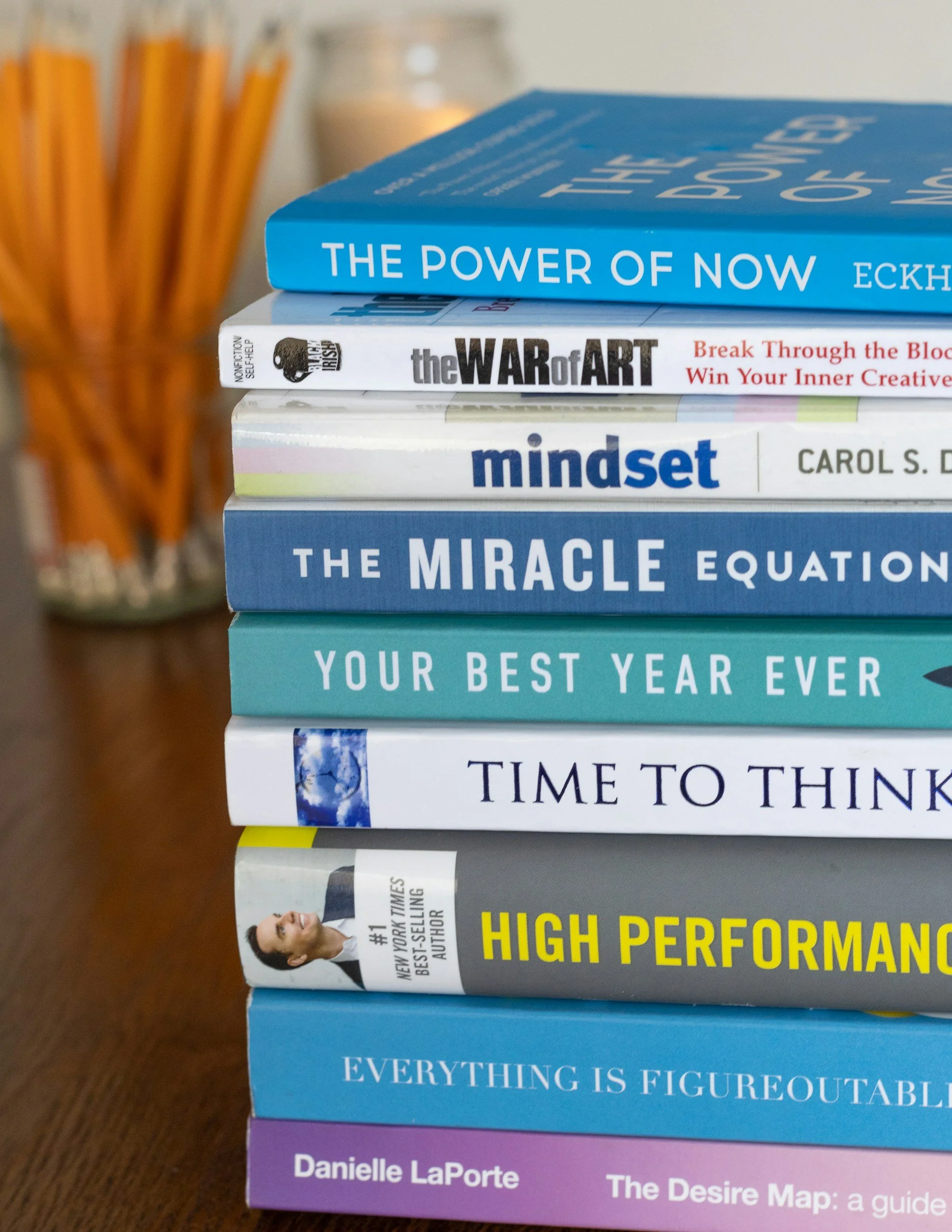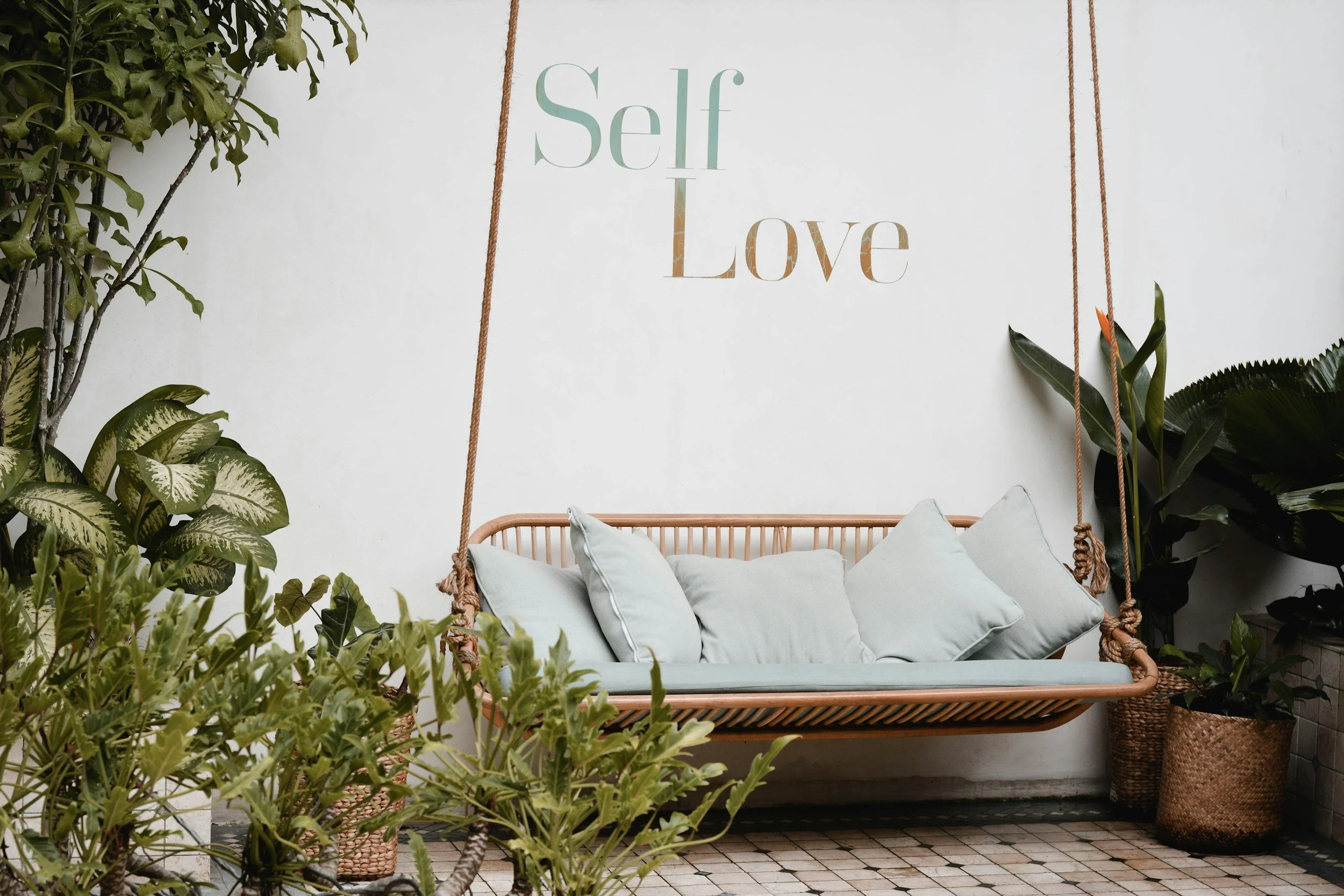Know Thyself…Don’t Play Therapist.
Let’s set the scene: You’re three hours deep in a Bravo rabbit hole, your TikTok FYP is filled with videos like “Why Your Attachment Style Is Ruining Your Life,” and you’ve just ordered three self-help books, a weighted blanket, and a chakra-aligning face mist off Amazon—all while binge-listening to your favorite crime podcast.
Hi. Same. Welcome to the club.
We’re tired. We’re healing. We’re trying.
We are the messy millennials.
If you’re like me—an overachieving, overworked, people-pleasing perfectionist who’s constantly oscillating between burnout and bold life plans (Travel! Concerts! Ways to elevate!)—you’ve likely dipped your toes (or, let’s be real, taken a full-body dive) into the self-help and mental health space.
But here’s the tea no one’s serving on IG carousels and productivity podcasts: Self-help and self-diagnosis are not the same thing.
Self-Help: Curiosity, Growth, and Empowerment
Self-help, when done with intention and curiosity, is the therapy-adjacent big sister that actually has your best interest at heart.
She’s the playlist you curate to boost your mood. She’s the journaling prompts that help you finally connect that your workaholism isn’t ambition—it’s anxiety in heels. She’s the late-night TED Talk that reminds you that growth isn’t linear, and that being human is...well, kinda messy.
Here’s what I’ve come to love about self-help:
It empowers you.
Self-help, in its healthiest form, builds your self-awareness muscle. It encourages reflection, curiosity, and openness. It doesn’t diagnose you with a disorder because you forgot your keys. It gently asks, “Hey, what’s behind that forgetfulness?”It’s a tool for self-discovery, not self-criticism.
The best self-help doesn’t shame—it guides. It reminds you that you’re not broken, just figuring it out. That you’re allowed to want more for yourself, even when you’re still learning how to rest.
It puts you in the center, not your symptoms.
You’re not just a list of red flags or DSM criteria. You’re a whole person with history, habits, hopes, and healing to do. Self-help asks, “Who am I becoming?” instead of “What’s wrong with me?”
Self-Diagnosis: Freezing, Labeling, and Misdirection
Now let’s talk about the messy side of modern mental health: the part where we use a few TikToks and an Instagram infographic to decide we have Generalized Anxiety Disorder because we cried during Inside Out and texted our ex. (Again, no judgment—I am you.)
Here’s the problem with self-diagnosis:
It can make you freeze instead of grow.
Self-diagnosis often skips over curiosity and dives head-first into certainty. It says, “This is what’s wrong with me,” instead of asking, “What’s going on with me?” And once we slap a label on it, we can start building a story around it—a story that keeps us stuck.It gives partial truths that feel like the whole truth.
Reading a few bullet points on an ADHD post and saying “That’s totally me!” doesn’t give space for nuance. Lots of people procrastinate. Lots of people dissociate. But that doesn’t mean everyone has a clinical diagnosis. That’s why trained providers look at patterns, history, context, and distress—not just relatable symptoms.It reinforces shame instead of reducing it.
Self-diagnosis often ends up being a weapon we use against ourselves. “I must be broken because I can’t regulate my emotions.” “I’m too much.” “I’m not enough.” Sound familiar? A real diagnosis should offer clarity, not condemnation. It should open the door to support, not self-loathing.
So... What Is Helpful?
Here’s where I’ve landed as a millennial in therapy:
💡 Self-help is most powerful when it leads you to ask better questions, not give yourself premature answers. Yes, this is most successful when done with a therapist.
Read the books. Listen to the podcasts. Follow the mental health creators. But don’t stop there. If something resonates deeply, if you see yourself in the stories or symptoms, take it as a signal—not a sentence.
Let it guide you to a therapist who can actually assess what’s going on with care, compassion, and training.
Final Thoughts From One Messy Millennial to Another
The truth is, we’re all a little tired. A little lonely. A little unsure.
We grew up with Mean Girls and “Live, Laugh, Love” wall decals, and somehow ended up navigating job burnout, complex trauma recovery, student loans, and trying to remember if we drank enough water today.
But the goal isn’t to label yourself into a corner.
It’s to know yourself well enough to grow—without judgment, without shame, and without trying to turn every TikTok into a therapy session.
You’re not just your symptoms. You’re not broken. You’re not one size fits most. You’re becoming.

